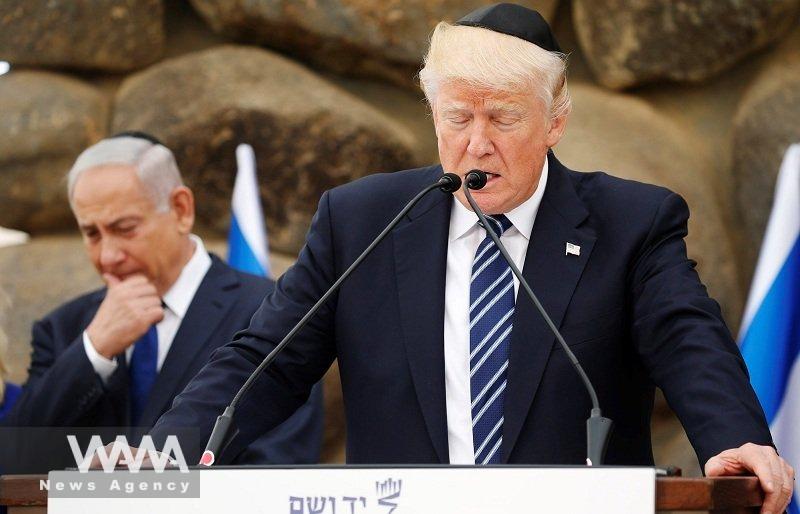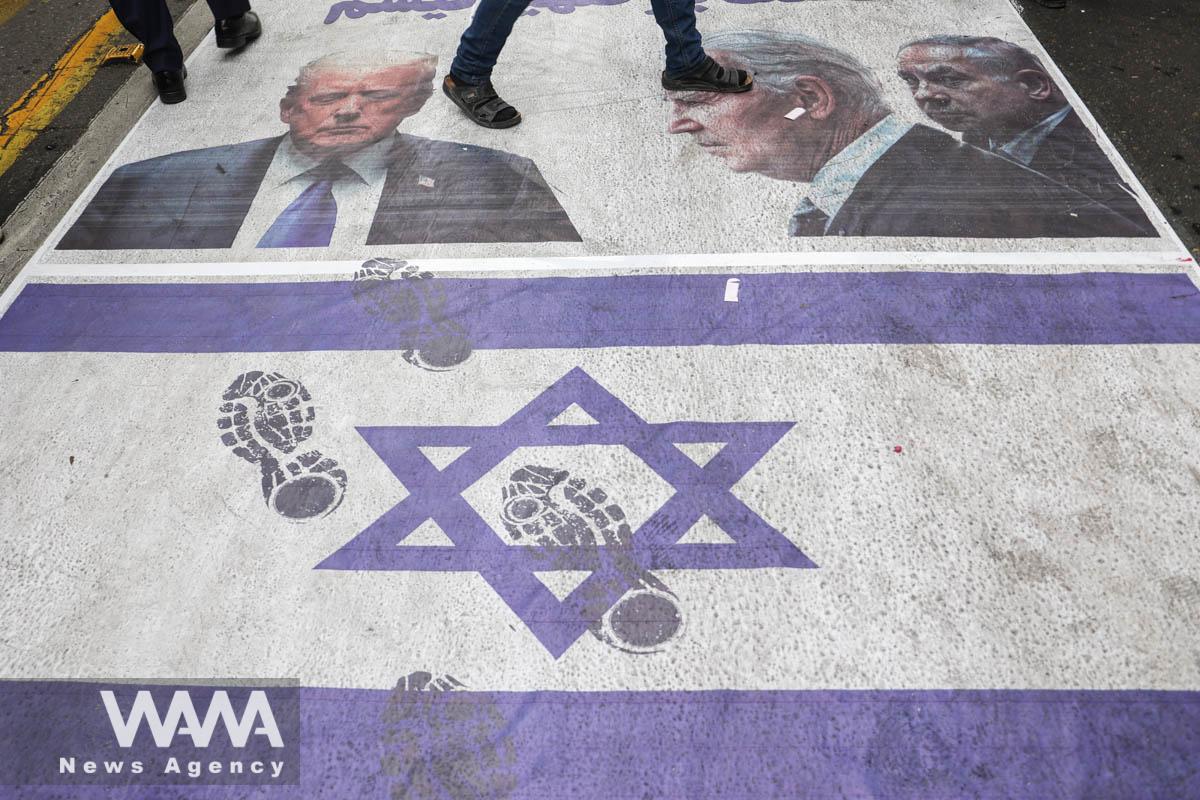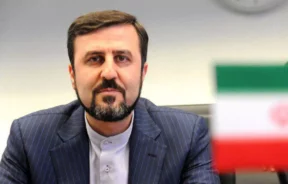The Diplomatic Dance of Israel and the U.S.
WANA (Feb 09) – Israel and the United States appear to be staging a diplomatic performance, but behind the scenes, it is a deadly game. In an interview with Fox News, Israel’s prime minister stated: “When we complete the transformation of the Middle East, we will flatten the main axis—Iran.” This statement is not just an ordinary threat; it reveals a premeditated plan.
Meanwhile, Trump, who prides himself as the architect of “great deals,” uses softer words on the surface but follows the same policy in practice: “I would prefer a non-nuclear deal with Iran over bombing them into hell. They don’t want to die. Nobody wants to die.”
These two statements summarize the joint U.S.-Israel strategy: pressure, isolation, and ultimately, forcing either an agreement or a confrontation. But is this plan feasible?

What is clear is that neither Washington nor Tel Aviv wants to enter a costly war. The U.S. economy is burdened with massive debt, internal crises, and the heavy expenses of the Ukraine war. Trump has openly admitted that to maintain American influence, Saudi Arabia must now pay $900 billion, up from the previous $500 billion, because the dollar no longer holds its past value. Given this, the U.S. neither has the financial capacity nor the willingness to engage in direct conflict.
On the other hand, Tel Aviv, exhausted by the war in Gaza, understands that a direct confrontation with Iran would come at an unbearable cost. However, does the absence of war guarantee Iran’s security?
Netanyahu explicitly states that removing Iran from regional equations is essential for establishing a new order: “If we eliminate Iran, the path to new agreements with Saudi Arabia and other countries will be clear.” This reveals Israel’s primary strategy—to sideline Iran through political and diplomatic pressure.
Summary of Key Points from #Netanyahu and #Trump ‘s Private Meeting:
1. Trump explicitly told Netanyahu that no military action against #Iran would be taken at this time, and diplomatic solutions would be tried first.
2. Israeli officials stated that any potential agreement… pic.twitter.com/RZwRzOkxpw
— WANA News Agency (@WANAIran) February 9, 2025
But can the Resistance Axis be removed from the equation without war? History has shown that any attempt to reshape the Middle East is met with countermeasures. In reality, the Resistance Axis has not only endured but, in some cases, has emerged stronger than before. Western analysts acknowledge the failure of the strategy to contain Iran because regional actors are no longer willing to rewrite the rules under Washington and Tel Aviv’s directives.
Iran’s leader recently stated: “The Islamic Republic is neither Saudi Arabia nor a weak country whose fate can be altered by changing lines on a political map.”
Trump, in another statement, claims: “If a deal is reached, Israel won’t bomb Iran.” But this is nothing more than a linguistic maneuver.
In the latest stance, Iran’s leadership has made it clear: “If we are threatened, we will threaten in return. If we are struck, we will definitely retaliate.”

Iran’s Leader Threatens America: “You Strike, We Strike”
WANA (Feb 07) – In the world of politics, sometimes a single statement can hit like a powerful missile—breaking through diplomatic barriers and shifting power dynamics. Today, in a meeting with Air Force commanders, Iran’s Supreme Leader responded to the latest U.S. remarks and sanctions with a stance that was not only directed at the […]
Iran’s leader describes negotiations with the U.S. as follows: “Negotiating with such a government is neither wise nor intelligent nor honorable.” A deal that puts Iran in a weak position will not prevent an Israeli attack; rather, it will pave the way for an uneven confrontation.
Negotiation is only effective when backed by real power—not through sanctions, nor by hoping for agreements that serve only one side. The balance of power in the Middle East has shifted, but who will ultimately hold the upper hand depends on the decisions made today.

Iranians step on an Israeli flag and a banner with pictures of U.S. President Joe Biden and Israel’s Prime Minister Benjamin Netanyahu and former U.S. President Donald Trump, during the 45th anniversary of the U.S. expulsion from Iran, in Tehran, Iran November 3, 2024. Majid Asgaripour/WANA (West Asia News Agency)
The Trump-Netanyahu duet is designed for Israel’s dominance: one holds the hands while the other strikes. Without an agreement, neither the U.S. can go to war nor does Israel have the capability.
Even when the U.S. was at its peak, Bush saw no viable option for war with Iran. Today, with America entangled in crises across ten different fronts, and with Trump being far from a wartime leader, war with Iran is not an option. This is where Iran must remain vigilant—because recklessness in negotiation and agreement could make Iran the next Libya or Gaza.













